Study in Australia
Let’s explore Australia as your next study destination. Australia is one of the most sought-after countries for international students due to its friendly, laid-back nature, excellent education system, and high standard of living. Graduates from Australian schools are in high demand due to the impressive international reputation of the Australian education system.
- Facts About Australia
- Australia in-Demand Courses
- Experience World Class Education
- Career-focussed Programs
- Post-Study Work Permit
- Support for International Students
- Safe and Diverse culture
- Immense Career Opportunities
- Research Oriented Programs
- Affordable Cost of Living
- No work restrictions while studying
- Business Analytics
- Data Science
- Computer Science
- MBA
- MBBS
- Finance, International Business and Accounting
- Law
- Architecture and Construction Management
- Engineering
- Fashion and Interior designing
- Psychology
- Duration and levels of study
- Academic requirements
- Offered Intakes
- English Language Requirements
- Basic Document Checklist
Australia offers a wide range of study levels for international students, including:
- English Language Intensive Courses for Overseas Students (ELICOS): These courses are for students who need to improve their English language skills before starting a degree program. The duration of ELICOS courses can range from a few weeks to several months.
- Vocational Education and Training (VET): These courses provide practical skills and knowledge for specific industries, such as hospitality, trades, and business. VET courses can range from several weeks to two years.
- Higher Education: This includes undergraduate and postgraduate degrees, such as Bachelor’s, Master’s, and Doctoral degrees. Bachelor’s degrees typically take three to four years however, Master’s degrees can take between one and two years
Australia also offers pathway programs that allow students to progress from one level of study to another. For example, some universities offer foundation studies programs that help students meet the entry requirements for higher education programs.
The academic requirements for international students to study in Australia can vary depending on the level of study and the program chosen. Here’s a general guide:
- Vocational Education and Training (VET): VET courses typically require students to have completed secondary education or equivalent. However, some courses may have additional requirements such as work experience or industry certifications.
- Undergraduate degrees: Bachelor’s degrees usually require secondary education or equivalent completion. Some programs may have additional requirements such as specific subjects or minimum grades.
- Postgraduate degrees: Master’s degrees generally require the completion of a Bachelor’s degree or equivalent. Some programs may have additional requirements such as work experience, research proposals, or minimum grades.
- Semester 1 (February/March): Main Intake for most undergraduate and postgraduate programs. Applications typically open in early August of the previous year and close in mid-January.
- Semester 2 (July/August): This intake is smaller than Semester 1 and not all programs may be available. Applications usually open in late February or early March and close in late May or early June.
Some universities also offer trimesters or quarters. The exact start and end dates of each intake can vary by institution and program.
If you are applying for an Australian Student visa, you may be required to demonstrate your proficiency in the English language by taking one of the following English language tests:
- International English Language Testing System (IELTS)
- Test of English as a Foreign Language (TOEFL)
- Pearson Test of English (PTE) Academic
- Academic transcripts: Official transcripts from all previous educational institutions attended, including high school and any colleges or universities previously attended.
- English language proficiency: Evidence of English language proficiency, such as an IELTS or TOEFL test score, may be required for international students.
- Personal statement or essay: A personal statement or essay explaining the applicant’s academic and career goals, relevant experience, and why they want to study at the particular university.
- Letters of recommendation: Letters of recommendation from teachers, professors, or employers may be required.
- Resume or CV: A resume or curriculum vitae (CV) detailing the applicant’s education, work experience, and other relevant information.
- Passport or other identification: A valid passport or other identification document may be required for international students.
- Genuine Temporary Entrant (GTE) Requirement. To meet the Genuine Temporary Entrant (GTE) requirement, you must write a statement that addresses two criteria:
- That you are genuinely coming to Australia to study and not for any other reason.
- You will only be residing in Australia temporarily (and not overstaying your visa).
- Proof of Sufficient Funds (Bank Statement)
Australia offers a wide range of study levels for international students, including:
- English Language Intensive Courses for Overseas Students (ELICOS): These courses are for students who need to improve their English language skills before starting a degree program. The duration of ELICOS courses can range from a few weeks to several months.
- Vocational Education and Training (VET): These courses provide practical skills and knowledge for specific industries, such as hospitality, trades, and business. VET courses can range from several weeks to two years.
- Higher Education: This includes undergraduate and postgraduate degrees, such as Bachelor's, Master's, and Doctoral degrees. Bachelor's degrees typically take three to four years however, Master's degrees can take between one and two years
Australia also offers pathway programs that allow students to progress from one level of study to another. For example, some universities offer foundation studies programs that help students meet the entry requirements for higher education programs.
The academic requirements for international students to study in Australia can vary depending on the level of study and the program chosen. Here's a general guide:
- Vocational Education and Training (VET): VET courses typically require students to have completed secondary education or equivalent. However, some courses may have additional requirements such as work experience or industry certifications.
- Undergraduate degrees: Bachelor's degrees usually require secondary education or equivalent completion. Some programs may have additional requirements such as specific subjects or minimum grades.
- Postgraduate degrees: Master's degrees generally require the completion of a Bachelor's degree or equivalent. Some programs may have additional requirements such as work experience, research proposals, or minimum grades.
- Semester 1 (February/March): Main Intake for most undergraduate and postgraduate programs. Applications typically open in early August of the previous year and close in mid-January.
- Semester 2 (July/August): This intake is smaller than Semester 1 and not all programs may be available. Applications usually open in late February or early March and close in late May or early June.
Some universities also offer trimesters or quarters. The exact start and end dates of each intake can vary by institution and program.
If you are applying for an Australian Student visa, you may be required to demonstrate your proficiency in the English language by taking one of the following English language tests:
- International English Language Testing System (IELTS)
- Test of English as a Foreign Language (TOEFL)
- Pearson Test of English (PTE) Academic
- Academic transcripts: Official transcripts from all previous educational institutions attended, including high school and any colleges or universities previously attended.
- English language proficiency: Evidence of English language proficiency, such as an IELTS or TOEFL test score, may be required for international students.
- Personal statement or essay: A personal statement or essay explaining the applicant's academic and career goals, relevant experience, and why they want to study at the particular university.
- Letters of recommendation: Letters of recommendation from teachers, professors, or employers may be required.
- Resume or CV: A resume or curriculum vitae (CV) detailing the applicant's education, work experience, and other relevant information.
- Passport or other identification: A valid passport or other identification document may be required for international students.
- Genuine Temporary Entrant (GTE) Requirement. To meet the Genuine Temporary Entrant (GTE) requirement, you must write a statement that addresses two criteria:
- That you are genuinely coming to Australia to study and not for any other reason.
- You will only be residing in Australia temporarily (and not overstaying your visa).
- Proof of Sufficient Funds (Bank Statement)
The Process in a Nutshell

Get Free Consultation
Choose Your Dream University
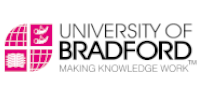
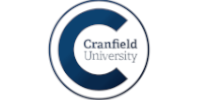
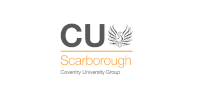
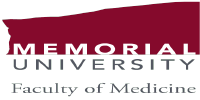
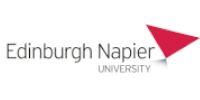

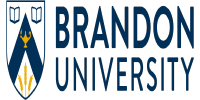
Real People Real Stories

I feel privileged to convey my gratitude to STUDENT WAYS for assisting me with all the documentation, admission application and visa process for Canada. The supporting team had played an efficient role for my success. For sure, I would like to refer STUDENT WAYS to prospective students. Thank you Vinod Sir & team.
Thanks to Faryal Sheikh, She is a amazing and helpful counselor and always there for a help and guidance whenever I am in need. She truly loves her job and try to guide her students at every moment. She possess a vast knowledge of Canada, US & Canada (I asked her about these only) and can give you options based on your eligibility not the institutions on their panel. In short, she is very transparent in dealing with students.
Request a Call Back
Book your Free Counseling Session with our Experts









